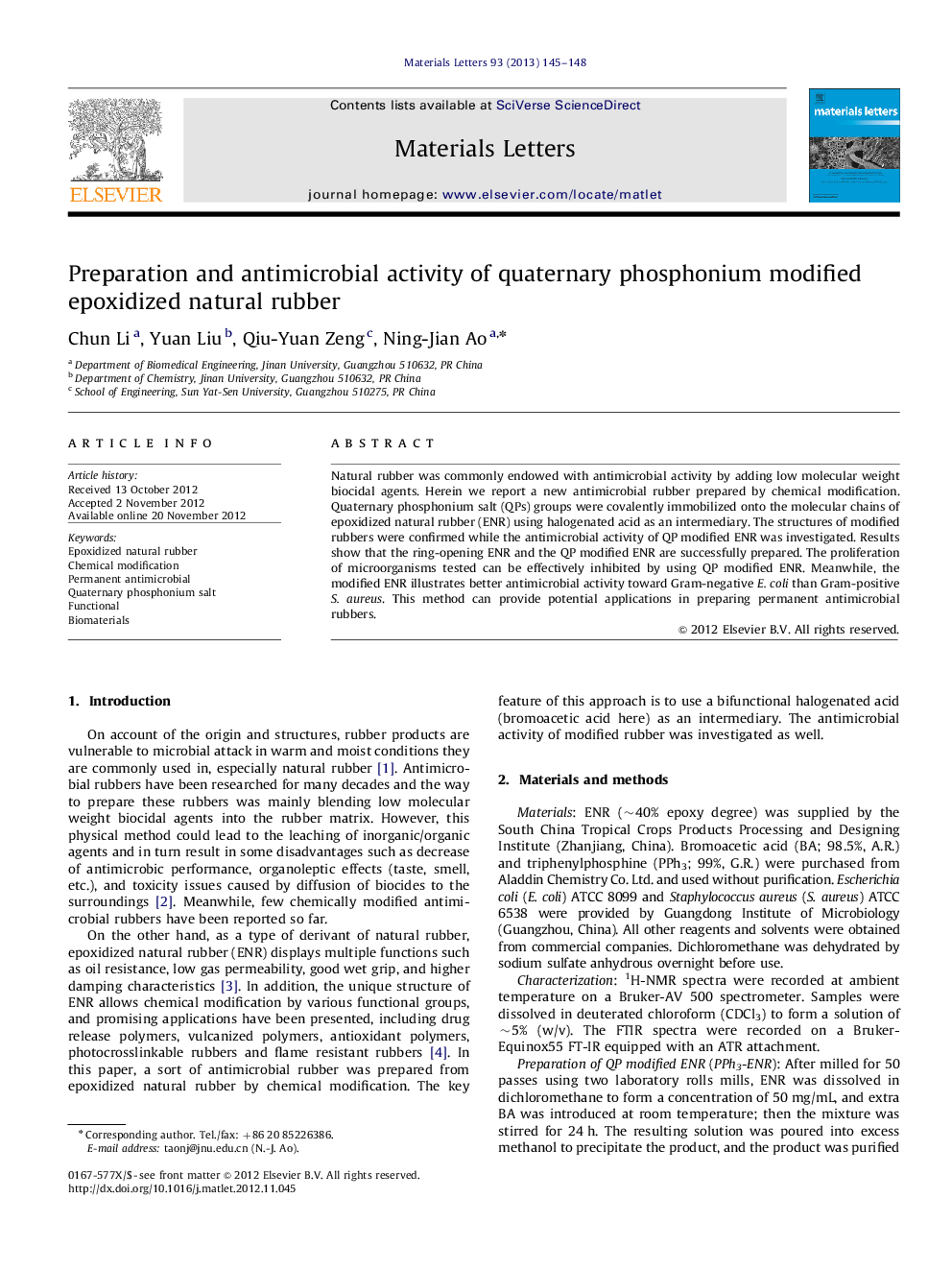| Article ID | Journal | Published Year | Pages | File Type |
|---|---|---|---|---|
| 1645553 | Materials Letters | 2013 | 4 Pages |
Natural rubber was commonly endowed with antimicrobial activity by adding low molecular weight biocidal agents. Herein we report a new antimicrobial rubber prepared by chemical modification. Quaternary phosphonium salt (QPs) groups were covalently immobilized onto the molecular chains of epoxidized natural rubber (ENR) using halogenated acid as an intermediary. The structures of modified rubbers were confirmed while the antimicrobial activity of QP modified ENR was investigated. Results show that the ring-opening ENR and the QP modified ENR are successfully prepared. The proliferation of microorganisms tested can be effectively inhibited by using QP modified ENR. Meanwhile, the modified ENR illustrates better antimicrobial activity toward Gram-negative E. coli than Gram-positive S. aureus. This method can provide potential applications in preparing permanent antimicrobial rubbers.
Graphical abstractFigure optionsDownload full-size imageDownload as PowerPoint slideHighlights► Antimicrobial epoxidized natural rubber prepared by chemical modification. ► Quaternary phosphonium salt groups were covalently immobilized onto rubber molecular chains, using halogenated acid as an intermediary. ► The modified rubber shows better activity toward E. coli than S. aureus. ► This approach can provide promising applications in permanent antimicrobial rubbers.
